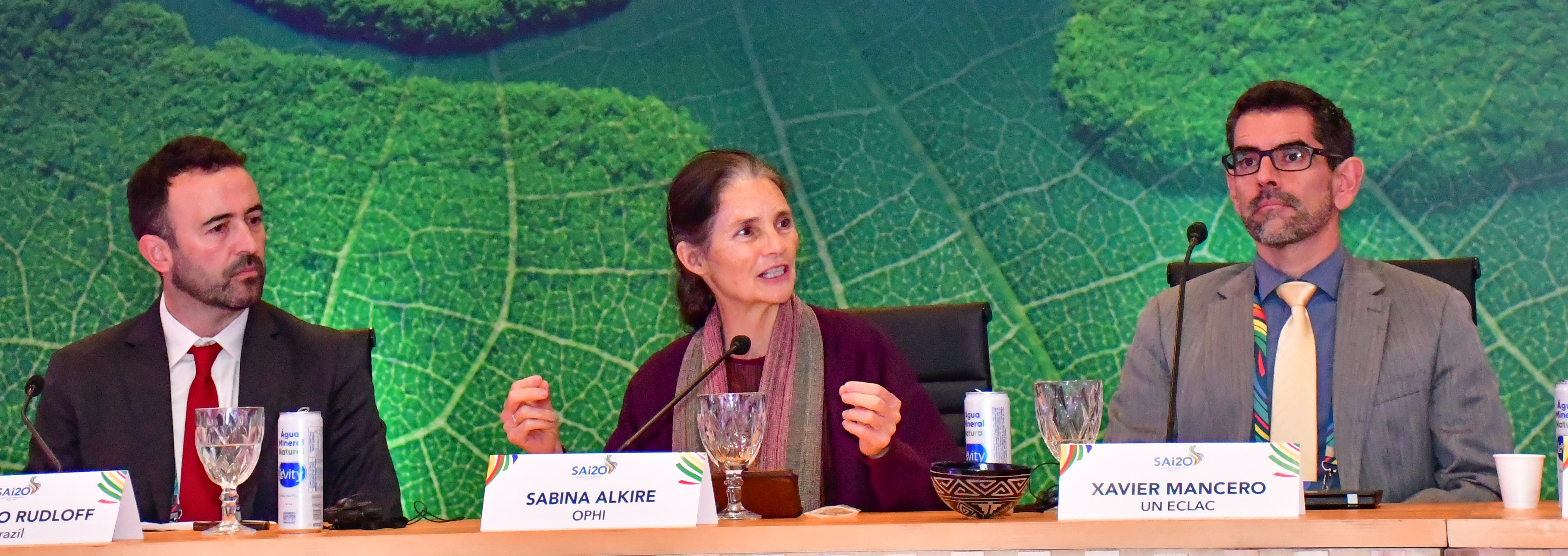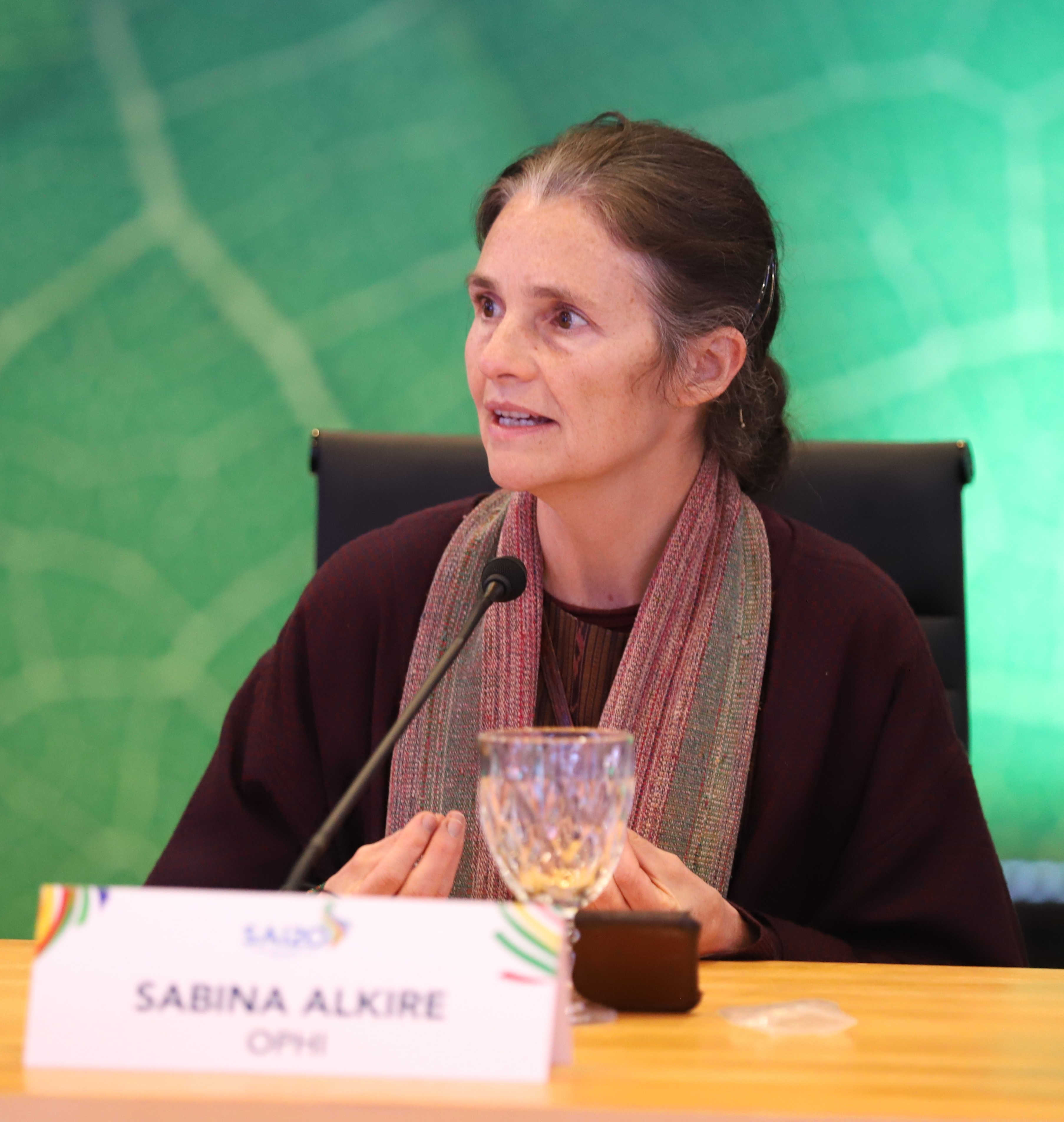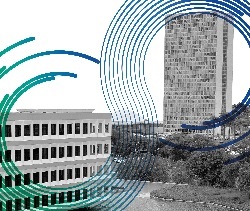Tribunal de Contas da União
Countries detail initiatives to fight hunger and poverty

The second panel of the SAI20 Summit addressed multidimensional poverty in the context of climate change. Opening the discussion, Sabina Alkire, Director of the Oxford Poverty and Human Development Initiative (OPHI), detailed the applications of national and global Multidimensional Poverty Indices (MPI).
The MPI is designed to measure poverty comprehensively by considering multiple dimensions beyond income, such as education, health, and living standards. It is flexible, allowing adaptation to the specificities of each context to capture different aspects of poverty. The index measures poverty by analyzing the various deprivations experienced by people.
The tool also serves as a primary poverty indicator, providing detailed data that can be used for public policy planning. It shows not only the prevalence of poverty at the national level but also how it is distributed across different regions, social groups, and according to each specific deprivation indicator. This measurement aligns with the United Nations Sustainable Development Goal (SDG) aimed at ending poverty in all its forms.
In her presentation, the professor explored how climate change intensifies existing poverty and creates new challenges, and suggested the inclusion of climate-induced deprivations in poverty measures. According to her, integrating climate variables into MPIs allows governments to identify vulnerabilities more effectively, enhancing the coordination of public policies and the adaptation of strategies. The indicator shows that individuals experiencing deprivations in at least 33% of the assessed dimensions (such as adequate nutrition, access to electricity and clean water, and years of schooling) are considered poor.

“Supreme audit institutions play an important role in assessing public policies and ensuring that resources allocated to fight poverty and tackle climate change are employed with efficiency and transparency. The Brazilian audit institution's insight of using SAIs to address hunger and poverty is historic, and the potential of SAI20 to make a difference in people's lives is real and tangible," noted Sabina.
The multidimensional poverty data collected in countries that apply the MPI are used as official statistics and reported for SDG indicator 1.2.2: "By 2030, reduce at least by half the proportion of men, women, and children of all ages living in poverty in all its dimensions according to national definitions."
Sabina emphasized that as initiatives to fight hunger and poverty are implemented, and the deprivations people suffer decrease, poverty also decreases. "It's a direct relationship," she explained.

Participants
The panel also featured presentations by Xavier Mancero, representing the Economic Commission for Latin America and the Caribbean (ECLAC), Nina Rentel, Director of Social Technologies at the NGO Gerando Falcões, Tsakani Maluleke, Auditor-General of South Africa, and Philipp Hauser, Director of the E+ Energy Transition Institute.
The complete afternoon schedule for the first day of SAI20 Summit is available here.


